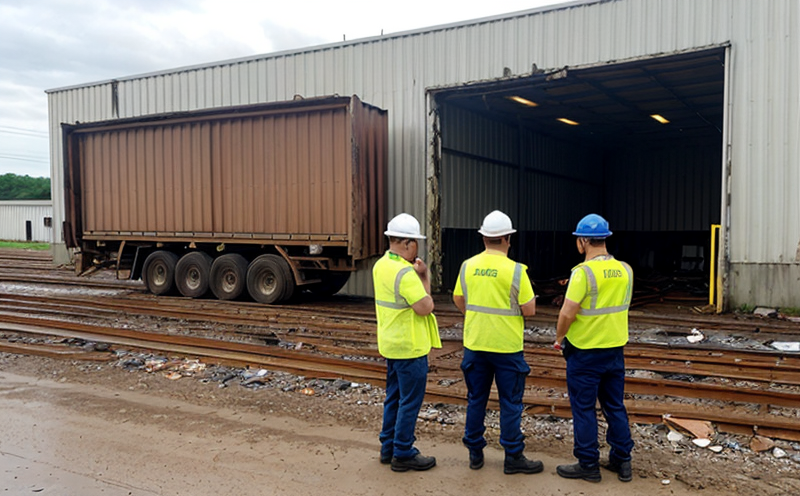Incident reporting inspection
In Environmental Health and Safety (EHS) inspections, incident reporting plays a critical role in ensuring compliance with regulatory standards and fostering safer work environments. Incident reporting inspections are tailored to identify the root causes of accidents or near-misses within an organization. These inspections are not merely reactive but proactive measures designed to prevent future incidents by addressing underlying issues that led to the event.
Incident reporting is a cornerstone in EHS management, and it encompasses various aspects such as documentation, investigation, analysis, and corrective actions. The primary goal of incident reporting inspection is to provide actionable insights into potential hazards or unsafe conditions that could lead to accidents, injuries, or environmental damage. This process involves systematic data collection from the incident scene, interviews with personnel involved, and a thorough review of relevant procedures and protocols.
The scope of an incident reporting inspection extends beyond mere compliance; it also serves as a learning tool for continuous improvement. By identifying patterns in incidents, organizations can implement targeted training programs, enhance safety measures, and improve overall operational efficiency. The use of international standards such as ISO 45001, OHSAS 18001, or EN ISO 45001 guides these inspections to ensure they are aligned with best practices in the industry.
During an incident reporting inspection, specialized equipment and methodologies are employed to gather comprehensive data. This includes visual assessments of the incident site, use of digital cameras, drones for aerial views, and sometimes even forensic analysis tools. The collected information is then analyzed using statistical methods or root cause analysis techniques like Fishbone Diagrams (Ishikawa) or the 5 Whys method.
Accurate documentation is crucial in incident reporting inspections. This involves creating detailed reports that outline the sequence of events, identify contributing factors, and propose recommended corrective actions. These reports serve as a reference for future audits and training sessions, ensuring that lessons learned from past incidents are not forgotten. Compliance with regulatory requirements such as OSHA (Occupational Safety and Health Administration) in the U.S., HSE (Health and Safety Executive) in the UK, or similar bodies worldwide is mandatory.
The findings of an incident reporting inspection can have far-reaching impacts on organizational culture. They encourage a safety-first attitude where employees are encouraged to report incidents without fear of retribution. This transparency fosters trust between management and staff, leading to improved morale and higher levels of engagement in safety initiatives.
Benefits
- Enhanced Safety: Identifies potential hazards early, reducing the likelihood of future incidents.
- Compliance Assurance: Ensures adherence to regulatory standards and best practices in EHS management.
- Informed Decision-Making: Provides actionable insights that can lead to strategic improvements in safety protocols.
- Cost Savings: By preventing major incidents, organizations save on medical costs, insurance premiums, and downtime.
- Improved Reputation: Demonstrates a commitment to EHS, which can enhance the organization's public image and stakeholder trust.
The benefits of incident reporting inspections extend beyond immediate safety improvements. They contribute to long-term sustainability by promoting a culture of continuous improvement and learning. By integrating these inspections into regular operational practices, organizations can create lasting positive impacts on their environment and community.
Eurolab Advantages
Eurolab offers unparalleled expertise in incident reporting inspections, leveraging years of experience and advanced technologies to provide comprehensive solutions. Our team comprises highly qualified professionals who understand the nuances of EHS management. With a strong track record, Eurolab ensures that each inspection is conducted with precision and thoroughness.
- Expertise: Our inspectors are trained in the latest methodologies and standards relevant to incident reporting inspections.
- Technology: Utilizing state-of-the-art equipment such as drones, advanced cameras, and forensic analysis tools enhances the quality of data collected.
- Compliance: Eurolab’s services are aligned with international standards like ISO 45001, OSHA, HSE, and EN ISO 45001, ensuring compliance with all necessary regulations.
- Confidentiality: We maintain the highest levels of confidentiality regarding all inspection findings to protect sensitive information.
Choosing Eurolab for your incident reporting inspections guarantees you receive services that are not only reliable but also tailored to meet your specific needs. Our commitment to excellence ensures that every inspection contributes significantly to enhancing safety, compliance, and sustainability within your organization.
Environmental and Sustainability Contributions
The impact of incident reporting inspections extends beyond immediate safety improvements; it plays a crucial role in environmental stewardship and sustainability. By identifying and addressing potential hazards early on, these inspections help minimize the risk of accidents that could lead to environmental contamination or harm.
- Reduction in Environmental Impact: Preventing major incidents reduces the likelihood of hazardous materials being released into the environment.
- Sustainable Workplaces: Creating safer workplaces not only improves employee health but also contributes to a more sustainable ecosystem.
- Eco-friendly Practices: Implementing recommended corrective actions can lead to reduced waste generation and energy consumption, fostering eco-friendly practices within organizations.
The proactive approach of incident reporting inspections aligns with the goals of environmental sustainability. By adopting best practices in EHS management, organizations contribute positively to their communities and help preserve natural resources for future generations.
At Eurolab, we recognize the importance of integrating sustainability into our services. Our incident reporting inspections are designed to not only enhance safety but also promote responsible environmental stewardship. Through these efforts, we aim to create a safer and more sustainable world.





